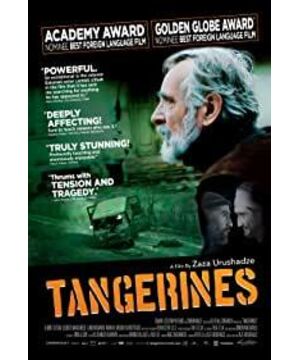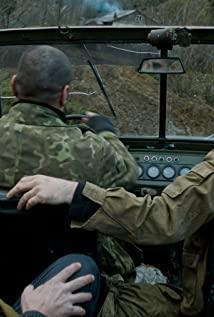Background introduction: At the beginning of the 19th century, the Russian Empire and the Ottoman Turk Empire continued to clash. The main focus was on the fight for control of the Black Sea coast area (such as the Crimea Peninsula, the Turkish Strait, and the Caucasus). Of course, there are many involved. The wrestling of European powers. Tsarist Russia finally controlled the Caucasus after the Crimean War (1853-1856) (despite a disastrous defeat at the war level, the Russians won in the Caucasus battlefield). The Russians hope to make Abkhazia a buffer zone with Georgia, which has a complex ethnic and religious composition. Zone). In the end, Russia declared Abkhazia a "special military province" in the empire in 1864, and expelled Abkhazians on a large scale from 1864 to 1878. About 40% of the local population were Muslims and they were forced to move. To the Ottoman Empire. At the same time, Estonians continued to emigrate to northern Russia, Siberia, the Far East, Crimea, and the Caucasus. This was actually part of Russia's planned colonial expansion strategy. Naturally, a large part of the immigrants were poor serfs, and they were able to obtain economic benefits such as land. In addition, the influx of immigrants also diluted the proportion of the indigenous people, and eventually made Abkhazia basically lose the ability to resist Russian rule. Estonian immigrants established their first settlement (the "Estonian village") in Abkhazia in 1882. According to data from 1886, there were 638 Estonians in Abkhazia. By 1989, there were about 1,500 descendants of Estonian immigrants living here. In 1992, the Abkhaz separatist forces declared independence and the Georgia-Abkhaz War broke out. This bloody conflict that lasted for 14 months ended with the withdrawal of Georgia’s troops. Since then, the two sides still have tense relations and sometimes disputes. During the war, most of the Estonian nationals in Abkhazia successfully evacuated and returned to the motherland. This film is based on this background, and selected one of the Estonian villages to start the plot~ Here is another supplement (from the content of the Chinese version of Wikipedia): Abkhazia declared independence on July 23, 1992, and the Georgian army was in the same year 8. March entered Abkhazia, but was defeated in September 1993. In 1994, under the supervision of the United Nations and the intervention of the CIS led by Russia, the two sides ceased fire, and then the Russian army stationed in Abkhazia under the name of the CIS peacekeeping force. But the issue of sovereignty remains unresolved. Since then, 83% of Abkhazia’s territory was controlled by separatist forces protected by Russia in the city of Sukhumi, and the remaining 17% (ie Upper Abkhazia) was under the administration of the Georgian Autonomous Republic of Abkhazia. The Abkhaz issue is one of the main disputes between Georgia and Russia and one of the sources of a series of tensions between the two countries. The prolonged war has caused a large number of humanitarian crises, a large number of civilians have died innocently, and even inter-ethnic massacres have occurred. For example, the Abkhaz separatist forces once carried out "cleansing" of Georgians in the territory. In August 2008, after the outbreak of the South Ossetian War, Abkhazia, with the help of the Russian army, expelled all Georgian military forces from the territory, completely controlled all the claimed territory and once again Declare its independent status. But this country is not recognized by the United Nations and most countries in the world. -------------------------------------------------- -------------------------------------------------- ------------------------------------------------- two . Personal film review: (contains spoilers, please stop by those who have not yet watched the movie!) Let me talk about the form first: This film is a rare war film, it does not have "Saving Private Ryan" and "Black Hawk Down" The gorgeous special effects, big scenes and big productions of "Apocalypse Now" and other films have more real and moving power. Not only was the scale of the war small, but even the frontal conflict scenes in the film appeared towards the end, not to mention that most of the plot only took place between the four people within the Ivo’s house. The color of the whole film is cold, but it still retains the warmth of the heart in the gloom and gloom-the bright fire and lights in the Ivo room and the dots of kumquats in the orchard, which may also imply that the dark clouds of war are enveloped The glow of humanity remaining below it. In terms of photography, it is restrained and simple, without the slightest eye-catching dazzling skills. Most of the time, the slow-moving lens changes steadily. It fits the visual characteristics of the human eye to a large extent and makes this small place not too small. Make people claustrophobic. The three protagonists are all well-known Estonian actors, and the other two are Georgians. They all showed convincing and wonderful acting skills. This film is also the first film jointly produced by Georgia and Estonia. The soundtrack is small and precise. According to IMDB, there are only 3 songs in total: Me gadmovtsurav zgvas, Mandariinid, and Mandariinid Theme. The theme song continues to recur with the progress of the film, but it is not cumbersome. From the opening to the ending, this melodious and sad music not only exaggerates the insignificance of ordinary people involved in the war, but also shows the humanity that has not yet been wiped out. And the praise of conscience. There is another interesting place-there are no female characters in the film, and the granddaughter of the old man is only mentioned occasionally in the photo and the protagonist. Now let’s take a look at the content: 1. I have always believed that first-class comedies make people laugh with tears, and good tragedies make people cry with laughs. After all, comedies and soap operas with only jokes are no different. The complete tragedy is too depressing, burying all hope, and humor and suffering are the golden partners. This film is obviously a tragedy combined with humor. Director Saza Ulushaze is also a screenwriter, and I have to admit that "Kumquat" has found the perfect balance between suspense, humor and tragedy. Two major suspense—the relationship between Ahmed and Nika, and the reason why Ivo insisted on guarding this land—continued throughout, and whenever a smile appeared and the audience relaxed, dramatic events would suddenly happen, so Our mood also followed the ups and downs, constantly experiencing full tension. For example, the sudden artillery fire after the campfire barbecue conversation, the uninvited soldiers of Abkhazia and the tragedy happened when the four people imagined a bright future. These two episodes of extreme contrast made me stunned and unforgettable. 2. This film exposes the cruel nature of war through a tragicomedy of small people: for ordinary people, war is an absurd and merciless "entrance". I can't think of a better term to describe "involvement" for a while, so let's use this word for now. The four protagonists in the film, Ivo is old and strong. After experiencing the pain of losing his son and the pain of separation, he has already seen through the nothingness behind the war; Margos is honest and simple, and still misses the kumquats in the garden during the war. , Not for money, but can't bear them to be annihilated in the flames of war; Ahmed is thick and thin, cold on the outside and hot on the inside. He joins a mercenary to support his family; Nika has a strong self-esteem and is impulsive, and walks without his mother. To the front line... The four have distinct personalities and full images. How did they get involved in this absurd and merciless war? The ancestors of the two Estonians immigrated here due to the needs of Tsarist Russia's military and colonization in the 19th century (see the background introduction in Part 1). They were far away from their homeland and took root in a foreign country, but were involved in foreign wars. Ivo's son died at the beginning of the war, but Margos tried to protect his citrus, but lost his life. Ahmed was a Chechen and became a mercenary for his livelihood. Although he was spared, he had to endure the torture of friendship gains and losses. After experiencing all this, he finally gave up the idea of continuing to work for foreigners and understood himself. Living safely with your family is the most precious thing. But how many mercenaries died in battles in foreign countries. It is ridiculous enough to die for money? As for Nika, he is the kind of young man with strong self-esteem, innocent, passionate, and idealistic heart. He thinks "This is my duty, so I joined the war", and he was so enthusiastic that he even devoted himself without even saying a word to his mother. War, but never thought about the meaning of this war. Ahmed said that he "doesn't know how to fight, but has been fighting" "You waste time, it's funny", while Nika's counterattack repeatedly implies that he understands history and reads a lot. Perhaps the image of Nika also symbolizes many idealistic intellectuals, who have read poems and books, but have not really understood the reality and the cruelty and absurdity of war. The death of such a straightforward intellectual youth, It reflects the fate of how many soldiers in the war! They have blindly become chess pieces and cannon fodder in the wrestling between politicians of the great powers, and they are still immersed in beautiful fantasy to death. Ivo’s words in the film are always refined and thought-provoking: “Let’s drink to death!” “Who gave you the power to do that (killing)? War? It’s too stupid” “I told him (son) that it’s not anyone The war, but he didn’t listen.” More ironically, the final tragedy happened because of Abkhaz soldiers’ suspicion of the identity of Ahmed as his own. Although the screenwriters let us see the joyful transformation of Nika and Ahmad's battles into jade silk, and let us see the remnants of humanity and equal humanitarianism, they ruthlessly destroyed all this beauty in the end. Being involved in a war means that either you die or I die. Yes, war is a bottomless vortex of turbulent turbulence and arrows. It is difficult for the people involved to break free and sink deeper and deeper; war is a turbulent torrent, and people who are entrapped can not help themselves and have no way to escape; war is a gluttonous wind. The flying tornado that abuses the snow, the inhaled person is like a turtle in an urn, with nowhere to hide... 3. Attached is the wonderful lines that I personally feel that the aftertaste is long: (Thanks to the hard translation, translation and suppression of the subtitles team: Jingzi, the man who falls, Yiren, Xiaoxin) -Doctor: I thought it would explode-Margos: It will be all in the movie Explosion-Ivo: The movies are all deceptive-Nika: But it’s hard for me to lie down while standing-Ahmed: I can sleep while standing like a horse-Nika: Did I talk to you?- Ahmed: Horses can speak too?-Nika: That's ridiculous, it fits your IQ level-Ahmed: I will bear you-Ivo: Would you like to drink tea?-Nika: Yes -Ahmed: I pour you brother down on your head? -Nika: Do you dare! You bastard Ivo: Look, Ahmed Georgian is outside, don't you want to kill him? -Ahmed: I'm a bit lazy today-Ahmed: Smile if you want, you don't know how to fight, but you keep fighting. It’s funny that you’re wasting your time.-Nika: You’re talking nonsense. I mean you’re illiterate. You don’t know anything about history. To kill...Who gave you the power to do that? Who? -Ahmed: War-Ivo: Too stupid-Nika: Why do we toast?-Ivo: To death! Come on Margos-Margos: I can't toast to death-I Wo: Why? Because their mothers are the children of the god of death-Iwo: It doesn’t matter where you kill each other, You will recover and go to the battlefield and die there-Nika: Let's see what Ivo is doing. I think I offended him (just now)-Ivo: Ivo is okay, Ivo is just urinating-Ahmed: Those Georgia What do people have to do with you? -Nika: Why do you ask this? -Ahmed: Just interested -Nika: We don’t know each other very well here, but they are good people Like my brother, we grew up together since childhood-Nika: I'm sorry-Ahmed: I'm sorry that your companion was killed those good people-Ahmed: How did he die?-Ivo: He was at the beginning of the war He died-Ahmed: Who killed him?-Ivo: Only God knows that he rushed to the battlefield early and said he wanted to protect our homeland. I persuaded him not to go. I told him that it was not anyone’s war but he wouldn’t listen- Ahmed: So the Georgian killed him?-Ivo: Yes, but what about it?-Ahmed: Really? You buried a Georgian next to your son-Ivo: Ahmed Does it matter? Answer me! -Ahmed: It doesn’t matter. Finally, please allow me to use a line at the end of "The Summer Palace" as the closing remark. Somehow, although the theme is not consistent, it feels strange to use it at the end of the film. Appropriately. "No matter whether you love each other freely or not, everyone is equal when you die. I hope death is not your end. If you look forward to the light, you will not be afraid of the darkness." [Copyright forbidden to reprint]
For more movie recommendations, wonderful reviews and related sharing, please pay attention to the official account: Ice Red Dark Blue Movie
View more about Tangerines reviews








